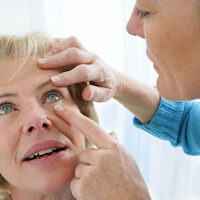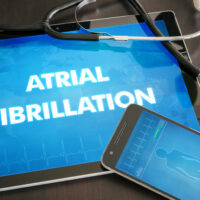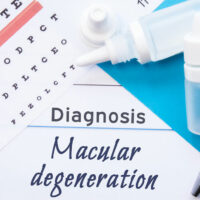Common signs and causes of colon cancer

Colon cancer, also known as colorectal cancer, is the third most prevalent cancer in the country. The American Cancer Society reports that about 1 in 25 women and 1 in 23 men may develop colon cancer during their lifetime. It starts in the large intestines and colon, with some instances beginning in the rectum. These organs are part of the digestive system. Read on to learn more about colon cancer, including its symptoms, causes, stages, and treatment.
Signs and symptoms of colon cancer
Issues with bowel movement
Changes in bowel movements can be a sign of colon cancer. Watery stools caused by diarrhea, sudden changes in stool consistency, constipation, or hard, dry stool with fluid leakage are potential indications. Although these symptoms may indicate digestive system problems, it is crucial to seek medical attention if they persist for an extended period. A doctor may recommend undergoing tests to detect cancerous cells in the colon.
Bleeding from the rectal area
Another common sign of colon cancer is rectal bleeding. The bleeding may occur in the digestive tract. As a result, the stool may appear maroon, crimson red, dark brown, or even tar-like black. But in some cases, the bleeding is not very clear. It can be seen only under a microscope. Since this symptom is similar to hemorrhoids, getting a diagnosis as soon as possible is recommended.
Feeling discomfort in the abdomen
Colon cancer can lead to abdominal discomfort due to the growth of cancerous cells in the colon, which disrupt the digestive process. This can result in the formation of excessive gas in the stomach, severe abdominal pain, and bloating. Even without eating full meals, there may be a feeling of fullness in the stomach. Occasionally, one may also feel nauseous.
Incomplete bowel movements
Since colon cancer begins in the colon located in the lower part of the digestive system, it can affect the excretion process of the body. Due to this, there can be incomplete or irregular bowel movements. As a result, there can be a persistent feeling of the bowels not emptying completely even after going to the bathroom. Although other health conditions such as Crohn’s disease, colitis, and inflammation also cause this symptom, it is best to get the colon checked.
Loss of appetite
As colon cancer progresses into the later stages, it’s common to experience a decrease in appetite and a reduction in meal sizes. Eating solid foods can become challenging due to their impact on bowel movements, resulting in a loss of muscle mass and ultimately leading to an overall reduction in body mass.
Chronic fatigue
The rapid growth of cancerous cells in the colon can lead to chronic fatigue. This symptom is also caused by the fact that colon cancer affects the digestive system, which can negatively impact the absorption of food and nutrients in the body. In addition, the loss of appetite can also lead to a lowering of energy level, contributing to increased feelings of tiredness and exhaustion that do not go away even after resting.
Causes of colon cancer
Under healthy circumstances, cells in the colon undergo the processes of growing, dividing, and dying. Colon cancer occurs when the cells grow at an uncontrollable rate. The new cells multiply at a faster rate than the old cells die. This leads to the development of tumors. It is not yet known what exactly causes colon cancer. However, there are certain factors that increase the risk. These include the following:
Older age
In general, colon cancer can occur at any age. However, the risk increases with age. It is more commonly observed in those who are 50 years or above.
A medical history of colorectal cancer or polyps
If one has already had colon cancer or noncancerous colon polyps, one is at a greater risk of developing colon cancer in the future. Also, if colon cancer goes into remission, there are chances that it can come back again.
Inflammatory conditions in the intestines
Chronic inflammatory diseases of the gastrointestinal tract and colon include Crohn’s disease, ulcerative colitis, and irritable bowel syndrome. All of these can increase the risk of colorectal cancer.
Genetic and inherited syndromes
Certain genetic syndromes increase the probability of colon cancer. These conditions are usually inherited through gene mutations. These gene changes are passed from one generation of the family to the next. One of the common genetic syndromes that act as a risk factor for colon cancer is familial adenomatous polyposis or FAP. Another condition known as Lynch syndrome, also known as hereditary nonpolyposis colorectal cancer (HNPCC), also increases the risk.
A family history of colon cancer
It is important to note that colon cancer can be inherited in certain cases. When an immediate family member, like a parent or sibling, has been diagnosed with colon cancer, it elevates the risk considerably. Additionally, if there are multiple instances of colorectal cancer within the family, the likelihood of developing the disease is even higher.
Meals comprising only low-fiber and high-fat foods
Those who follow consistent meal plans that are low in fiber and high in fats have a higher risk of colon cancer. These are usually meals that have too much red meat and processed meat and too less of vegetables, fruits, and whole foods. This is mostly because the lack of fiber and excess fats can affect bowel movement causing damage to the colon and rectal area. Fiber is an essential nutrient that prevents constipation and promotes smoother elimination of stools from the body.
Radiation therapy
Individuals who have received radiation therapy for various medical conditions and cancers affecting the abdominal region may be more susceptible to colon cancer.
Experts have established a strong correlation between food consumption, physical activity, and the likelihood of developing colon cancer. Individuals who are over the age of 50 are at a higher risk of developing this condition, which is why it is recommended to undergo regular check-ups.





